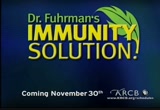tv Maria Hinojosa One-on- One PBS November 11, 2012 8:30am-9:00am PST
8:30 am
>> hinojosa: although slavery is now banned in every country, our next guest says that there are 27 million slaves living in the world today. most are in africa and asia, but thousands are among us here in the united states. free the slaves founder and author kevinales. i'm maria hinojosa. this is one on one. kevin bales, you are the author of disposable people: new slavery in the global economy, and you are cofounder of the
8:31 am
organization free the slaves. and i'm sure when people hear this they say, "wait a second-- kevin bales is saying that there are slaves, more slaves in the world now than ever before?" so help our audience understand that, because i'll bet many of them are just going to say, "i don't believe that." >> you know, maria, there's a certain paradox about this. there are about, to the best of our calculation, about 27 million people in the world in slavery. and you're right, that's double the number that were taken out of africa in the entire 350 years of the transatlantic slave trade. but the paradox is that 27 million in today's global population is the tiniest, the smallest fraction, of the global population to ever be in slavery. so it's large raw number, but it's actually a very tiny fraction of the global population. >> hinojosa: but does it still mean that there are more now? >> it's pretty easy to say, because we're at 27 million, that we have possibly more now than we've ever had in history.
8:32 am
>> hinojosa: and you say that slaves now are cheaper? >> that's all about this global population growth. because as the population went from two billion up to almost seven billion today, just in the last 50 years, it's glutted the market in the developing world for slaves. and what i mean by that is not that, you know, we're breeding more slaves, but that there are so many people who are now so vulnerable, so poor, and also living in places where the rule of law doesn't protect them. and when the rule of law won't protect you, it's easy for people who have guns and violence at their disposal to take control of you. and when they do, they can enslave you. and there's simply so many people who are poor and vulnerable who live where the rule of law doesn't work-- something like six or seven hundred million people in the world. >> hinojosa: so almost a billion. >> almost a billion who are potentially enslavable. >> hinojosa: which is really... i mean, that's an extraordinary number, and you basically say
8:33 am
they are vulnerable to becoming slaves. >> that's right. >> hinojosa: so there are other people who have other numbers. there are people who also put the numbers of estimates at slaves now at about half of what you say. so where does that dispute... and if these... i guess people think that slavery is something that is underground, hidden. so how is it that you're able to count people who are supposed to be hidden, or is it that they're hidden in plain sight? >> no, no, no. some are hidden in plain sight, but, you know, i have to admit... and for anyone who works in this area, these are the best estimates we can come up with. they're not very strict counts. i mean, we put these numbers together, and the ilo had a number... the international labor office had a number that was about half of the number that we use. but we all arrived at those numbers in the same way, with one single exception, which was because the ilo is an international governmental organization, it's not allowed always blish s own estimates.
8:34 am
sometimes it's required to publish the estimates given to it by national governments. so the ilo itself has published another report that says, "we think it's actually more, but the government of india, for example, insisted that we use their official number, which most people think is probably one-tenth of what it actually is." >> hinojosa: wow. so give us... >> you know how governments like to say good things. >> hinojosa: well, give us a sense about the countries that you say are most problematic right now. mauritania. >> well, mauritania has a significant proportion of its population in slavery. >> hinojosa: so the proportion of the population in mauritania? >> is maybe 15-25%. >> hinojosa: enslaved. >> enslaved. but they have a long history of hereditary slavery there. >> hinojosa: but when you go, for example, to mauritania, or someone else, let's just say, are they going to see it? do they understand? do people understand what they're seeing, and is part of the work that you're doing in free the slaves is to teach us how to recognize what we need to be looking for? >> absolutely and it's interesting.
8:35 am
you go to mauritania, you'd see someone literally in rags. say a 12-year-old boy, literally wearing rags. dirty, maybe scarred up, leading by the hand a beautifully dressed ten-year-old to take them to school. and you think, "wait, what is this, a servant? is this, like, the cousin nobody likes? i mean, what's going on here?" but the fact of the matter is this is one of the children of the slave family that belongs to the richer family that's sending the kid to school. >> hinojosa: and no one says anything? >> well, not in those communities, because it's normal in thoseommunies, ablutely normal. >> hinojosa: the first time that... and i want to hear your story of how you basically said you wanted to stop being an academic to become an abolitionist. but just say with me for a second on mauritania. the first time that you went there, and you saw something like that, and you understood this is not just, you know, a worker who's poor, this is
8:36 am
legacy slavery, what went on for you? >> well, i was... i wasn't shocked, because i had been prepared for this. you know, i had spoken to people who had been in slavery in mauritania before i ever went to mauritania. so i had been prepared by their descriptions. but of course, it's a whole nother thing when you get there and you see it around you. you go into a shop, and you realize, "oh, the person humping the furniture around the back of the furniture shop is a slave." the person hammering a car wheel out in front of a mechanic's looks like... you realize by the rags and by the scars, that's almost undoubtedly a slave. and when you see slavery as ubiquitous, almost the way it would have been in alabama in 1850, it comes as a big shocker, and you begin to have that sense of a place which is saturated with a kind of terror. because, of course, slavery requires violence. i mean, you don't have slavery
8:37 am
without violence. and so you get that sense that slavery's all... that terror and that violence is right there under the surface all the time. >> hinojosa: so mauritania is the north of africa. it has a border with morocco? >> morocco, niger, senegal at the very bottom. >> hinojosa: senegal. so does the government... what does the government say? >> well, i have to... the good news is we finally have a newly elected government, and actually elected, for the first time in a long time in mauritania. and the government now is beginning to bring into place an antislavery program and plan. that had happened with the previous government that was... there was the first democratic election in, like, 50 years, and a government came in that stayed in about two years, and asked us to help them write a plan for the eradication of slavery in the country. d th the was coup d'etat, and the military took over, and they've just gone out about a year ago now. so the mauritanian government is beginning to move in the right
8:38 am
directions, and that's fantastic. but it takes a long time, because, like the united states in 1865, with four million people stepping out of slavery, they need all kinds of support. and the people in slavery in mauritania who are coming out need all kinds of support. and it's a very poor country. >> hinojosa: so other places that you believe the problem is still quite huge-- thailand? >> it's large in thailan but india is by far the country with the largest raw number. now, of course, there are a billion people living in india, but the number of people in slavery there could be north of 15 million. >> hinojosa: okay, 15 million? okay, 15 million people is a huge number. and you've got a government that is saying, "we recognize that we have a problem, and we have things in place on paper, but actually changing it is going to be..." >> hinojosa: i think you've
8:39 am
described it very well. they've known they had a problem for a long time. they've got a brilliant antislavery law, one of the best in the world. >> hinojosa: you're kidding. >> no. >> hinojosa: on paper it looks... >> and if you can get them to enforce it, it's fantastic. it's what we should have had here in 1865. but in terms of the state governments... you know how the us has all these state governments, and they can go crazy if they need to or want to? well, it works the same way in india. so state governments, some will admit they have a problem and do something about it. others are in denial. so we're often fighting along in situations where we're working with groups that are helping people out of slavery, but at the same time we're having to fight on two fronts-- once against the slaveholders, and once with, like, local police and local officials who just don't want the embarrassment. >> hinojosa: okay, so before we move into slavery here in the united states, i just want our audience to know about the other places. so mauritania, india, thailand... >> thailand, southeast asia. pakistan has large numbers.
8:40 am
north and west africa, really. so we talked about mauritania, but yocan me allhe way down the west african coast, very significant numbers of enslavement. >> hinojosa: all right, now, help our audience understand the definition, because there is an image in our country, and one that, you know, in terms of the media, popular culture... i mean, i was reading your stuff, and i was writing down... well, roots, you know? that's the image that a certain generation has. >> yeah, we hold in our mind a picture from the 19th century. >> hinojosa: chained. >> african americans, cotton fields. and that was slavery at one point in time in one particular place in the world. but, you know, slavery has taken all these different forms throughout all of human history. >> hinojosa: so define it for... >> but if you take all those forms and you say, "what is the core, what is the central attributes of this," it always amounts to the same thing-- one person completely controls another person. they use violence to maintain that control. they use that control to exploit them economically. >> hinojosa: and that's it? >> and they can't walk away. they can't walk away.
8:41 am
>> hinojosa: so child marriage... >> yes. >> hinojosa: ...is also a form of slavery? >> certainly there's... yeah, child marriage on two or three levels, not least because a child is a minor who cannot give their consent to what's going to become sexual use and so forth. and yeah, child marriage is even defined by the united nations, along with forced marriage, as a form of slavery. >> hinojosa: and what about if it's a child laborer who is maybe living at home with his family, but working... is that... that doesn't... >> probably not. >> hinojosa: probably not. >> i mean, there's an awful lot of... >> hinojosa: could be abused on the job, could be getting paid badly. >> the key question is, can that child walk away? can their family pull them out, evenf it's into a worse situation? see, slaves have no choice. so they can't even choose to walk away and starve to death in the gutter. >> hinojosa: do they recognize that they are slaves? do they call themselves slaves? is there an understanding,
8:42 am
absolutely, "i'm a slave"? >> well, many... for many the answer is yes, absolutely. so say we're in brazil, and you're a young, poor worker, you're from a slum area, and then you get lured into a job out west burning charcoal, chopping down the amazon. and you get out there, but you go out there because you think you're going to get a good job. but what happens when you get there is that somebody pulls a gun, they say, "you don't get paid, i'm going to beat you up right now, now we're going to put you to work." they understand they're in slavery. they get it, because they lived in freedom. but there are a lot of people in the world today who are in hereditary slavery, like families in mauritania, families in northern india. and for them, you know, they've actually said to me, "you know, my family's always belonged to that family, so we've always worked for them, and this is... you know, they give us food, and we live." and for them it's hard to imagine a life in freedom, because they've never had freedom. they've never been able to walk away. >> hinojosa: do they understand... in every situation
8:43 am
like that, have they been badly treated? >> oh, yeah. oh, yeah. >> hinojosa: so even though they say, "but my family has always worked for this family," and there's a relationship, underlying is, "and we were beaten at one time." there's some kind of... >> when women in northern india who are in enslaved families, who have been enslaved for generations, when they get an anslavery worker come in and talk to them for just a little while, it's the women who lead the families out of slavery. and what they say to the women antislavery workers, is, "i don't want my daughters to be raped the way i've been raped." >> hinojosa: yeah, it's very crystal clear. >> yeah, it's crystal clear. because slavery for women, no matter what the job is, picking cotton, working in a brothel, factory, you name it, means sexual assault. >> hinojosa: at one point or another, it's going to... >> yeah, absolutely. >> hinojosa: so kevin, you now haveual tizenship.
8:44 am
you're an american and a british citizen. and probably some people would be surprised when they find out that you actually grew up in the middle of oklahoma. >> that's right. >> hinojosa: and your first experience of what you saw as a child in oklahoma between a black family and your family... >> oh, well, when i was a tiny boy, and... >> hinojosa: but it planted the seed. >> it did. i mean, stepping into, in tulsa, oklahoma, a segregated lunch line. and i think i was, like, four. and there was a family waiting behind this little velvet-covered rope to go in the cafeteria line, but weere white, so we were going to walk right through. but i had been to kindergarten. i knew the rule-- first, first, right? they were there first. so i took this rope down and said, "y'all go ahead," speaking like an okie. and this father, you know, this african american father, and my father... you know, i can only barely understand now what must have gone on between those two. >> hinojosa: and why does it bring tears to your eyes to talk
8:45 am
about this moment, kevin? >> i think because i'm a father now. i think my innocence at the time didn't help me to... i didn't understand what was really going on. i look back now at my own family, caught up in that horror of racism, that terrible burden that we carried, and both... i'm both overjoyed that we put that much of it behind, even though we've got a long way to go, and also just to imagine what that had to feel like for those dads. >> hinojosa: do you... how often do you kind of go back to that ace? because when you talk about the work that you do... i found this really interesting and very sad. because you said all abolitionists, whether they were, you know, frederick douglass, or modern-day abolitionists like you, there is an emotional cost. you talked about... i didn't
8:46 am
know that fredrick douglass had had a breakdown, an emotional breakdown. help us to understand, then. you know, because people are like, "i've got enough emotional stuff going on in my life. you want me to... i'm not going to go there." help us to understand why... >> well, you can see, my work is full of inspiration. you know, when we see people come out of slavery, which we see every week-- we see people coming out of slavery every week-- you can't feel anything but... >> hinojosa: i'm just... honestly, i'm stuck with that. i'm just like... every week you're able to document people getting out of slavery? >> yeah. we get photos being sent to us from all of our field offices if we're not there visiting. and people are, you know, sayi, "look, here's a family who's out of slavery. here are 20 kids who are out of slavery." and i've got to say, you feel pretty good at the end of the week, right? but at the same time, you see things that are very hard, you know, very tough, very ugly.
8:47 am
and some... and in some ways the worst is when you can't do something about it. you know, if you see young teenagers in a brothel, and you know they're going to be raped 20 times that day, and they're enslaved, and that their pimp's going to beat them, and they may not survive, and there's a good chance they're going to have hiv within a year, and you're trying to get the work done to get in there and make it right, but you know you're not going to make it before some are lost, and that's... i don't... you know, this is not unique to the kind of work i do. i think doctors face this, and nurses face this, and firefighters must face this sometimes, these tough choices, these tough challenges. but it takes its toll, you know? you have to have people around you who understand, and you have to have a place to ground yourself. >> hinojosa: and what do you do? i mean, what do you do when you get into that place of desperation? >> personal desperation? you know, i don't know if i get desperate. you know, it's not so much desperate.
8:48 am
>> hinojosa: sadness. >> it's a kind of sadness, and it's... and i have to step back and say, "what have we done that's worked? what do we do that makes things right?" and concentrate on those things that have been positive. and of course, it makes you redouble your efforts, you know? you think, "wow, if we had the resources, we wouldn't be facing this tragedy." you knowif governments, even our own government, actually kept their promise when they passed a law that said we are not going to have slavery in our country, it's banned, it's abolished, if they actually kept the promise they made when they passed that law and said, "we're actually going to put our money where out mouth is," well, things would be different. >> hinojosa: so paint the picture of what we need to be looking at in terms of slavery in our own country. >> here's a country who's led the world in ideas and the philosophy of freedom.
8:49 am
and yet we've probably got a minimum of 40,000 people in this country in slavery. and we don't need it. i mean, we can fix it. we can absolutely fix this. this could be the first slave-free country in human history if we just decided to make that happen. >> hinojosa: all right, i'm going to stop you, because you're saying 40,000 minimum... >> yeah. >> hinojosa: ...of slaves... >> in the united states. >> hinojosa: ...existing in the united states. well, what do we do when we see it? >> i think we see a lot of slaves, but we don't see them. they are hidden in plain sight. i published a book with colleague last year, we called it the slave next door, because it's about the fact that we have slavery in the united states, but people can't see it. what they're doing is just under half, as best we can figure, of the people who are enslaved in the united states are young women enslaved into prostitution, brought here from all countries around the world, but particularly latin america, china, eastern europe, and so forth. >> hinojosa: any particular geographical region? >> there has now been a case, a federal case, in every one of
8:50 am
the 50 states. so we finally got one in north dakota, not that i wanted one. but the concentrations are around the edges. so, you know, the eastern seaboard, the western seaboard, across the south, those are the big concentrations. but it tends to be everywhere. after the women enslaved in prostitution, the next highest are domestic servants. so again, usually young women, enslaved as household servants. and, you know, there have been big cases near boston and long island. >> hinojosa: right, but most of these people think, "well, again, that is a family that came from a particular country, and then they brought that pers." and they're probably thinking, "i don't know if i would ever be able to see that, or if even..." you know, there might be some issues around that one, right? >> hinojosa: absolutely. you know, and in our book, in that slave next door book, we had a long interview with a woman in connecticut who was talking about how she came to
8:51 am
suddenly realize that this wonderful servant her neighbor had was actually enslaved. >> hinojosa: and who... like, paint that picture. what... this was... >> well, you know, it's like they'd go for dinner, and this person would... this young man would be so subservient, i mean, would just bring things on a pillow, and it was just fantastic, such a great cook. >> hinojosa: and this is, like, a white family that... >> a white family in a very upper middle class kind of neighborhood who then brought in a woman to mate with him, right? the young man was from india. brought a woman from india. but the amazing thing was, that enslaved couple actually fell in love, even though it was kind of a fixed marriage. and the neighbor began to realize what was going on, realized, "that guy's sleeping in the basement, on the floor." >> hinojosa: and did they call? >> she helped them. she talked to them. she helped them escape, and got them off to a job. >> hinojosa: you actually say that one of the things that's amazing in the work that you do
8:52 am
is that slaves can be freed, or have been freed, by human acts of kindness and awareness. >> in the united states, about a third of all the people who come out of slavery come out because of good samaritans-- citizens who have got their eyes open, who just take that moment and say, "honey, are you okay?" >> hinojosa: and maybe ask that question more than once. >> yeah. >> hinojosa: so it's domestic workers... >> people in prostitution. >> hinojosa: trafficked women. >> agricultural workers. >> hinojosa: agricultural workers. how do you... i was just in california, north of los angeles, and i drive by, i see a farm, and i see all of these workers. and i'm like, "my gosh, look at all of the farm workers." they're not invisible. >> no, and they may not be in slavery. >> hinojosa: how do you know the difference? >> there you have to get up close. you know, the classic... ground zero for slavery in agriculture is really south florida. but it also happens in california and other places.
8:53 am
but there you have work crew after work crew after work crew being pushed around in these old school buses. some of the bosses pay them very poorly and beat them up, but they're not slaves. some of the bosses take total control of their lives, use violence to maintain it, and pay them nothing, and don't let them walk away. >> hinojosa: so how is a good samaritan a good citizen? what are they supposed to do in that sittion i mean, do they go and they say to the employers, "i want to..." i mean, what does one do? >> hinojosa: i mean, the good news is that there's a great organization in south florida. a lot of the people who work in that organization have been in slavery and agriculture, and so they're going out into the fields, infiltrating and saying, "what's it like with you guys?" >> hinojosa: and that's the immokalee workers? >> yeah, the immokalee workers coalition. and they're fantastic. but us, what can we do? we can say to taco bell and all the other big retailers that use vegetables, tomatoes, and lettuce and like that from down
8:54 am
there, to say, "les work with those ngos and make sure your products are clean." >> hinojosa: you want people calling, you want people writing letters? what do you want them doing when they call up burger king or mcdonald's or any of the... >> well, the first thing, immokalee workers... i know that's a hard one to say. >> hinojosa: i-m-o-k-a-l-e-e. >> that's right. that organization has organized working with those food companies, and there's a number of companies who have now come online, like taco bell, and they do the right thing, and they support that antislavery work. but there are others that haven't. and you can look on their web site and figure it out. >> hinojosa: okay, before we end up, there is something that... probably a lot of us feel good about the fact that we now can eat dark chocolate and feel good about it, right? because it's full of antioxidants, and it's good for us. >> sure. >> hinojosa: so cocoa, chocolate, what do we as consumers in the united states need to know about slavery? >> of course, the way to guarantee that you don't have child labor or child slavery or slavery in your chocolate is to
8:55 am
eat fair trade chocolate. that's the way to go, buy fair trade. but i also have to say the chocolate companies in the united states have been bankrolling work on the ground to try to work through this problem. it's a very complex problem, and it's going to take a long time to crack it, because there's 1.3 million cocoa farms in just ivory coast and ghana. and they pump in about three million dollars a year that a foundation uses to try to deal with the problem on the ground. now, progress has been made, but i've got to tell you, it's not enough. we need more money and we need more resources to really crack this problem. so there's still some slavery in chocolate. i hate tsay it, but it's true. >> hinojosa: and your final message to our viewers-- do what? what do you want us to do? >> number one, read about it and look at the web site so you can find out what's going on. we can't solve a problem... >> hinojosa: freetheslaves.org? >> freetheslaves.net. >> hinojosa: .net. >> freetheslaves.net, because we can't solve problems we don't understand.
8:56 am
but the other thing is, take this one idea away-- we can actually end slavery. we're at this moment in history where slavery can be brought to an end globally. it might take us 25 or 30 years, but it can be stopped forever. and wouldn't that be great, a world wiout slavery? >> hinojosa: thank you, kevin, for opening up our eyes, making us act. >> oh, it's been fun. thank you. >> hinojosa: and thanks for all your work. continue the conversation at wgbh.org/oneonone.
54 Views
IN COLLECTIONS
KRCB (PBS) Television Archive
Television Archive  Television Archive News Search Service
Television Archive News Search Service 
Uploaded by TV Archive on

 Live Music Archive
Live Music Archive Librivox Free Audio
Librivox Free Audio Metropolitan Museum
Metropolitan Museum Cleveland Museum of Art
Cleveland Museum of Art Internet Arcade
Internet Arcade Console Living Room
Console Living Room Books to Borrow
Books to Borrow Open Library
Open Library TV News
TV News Understanding 9/11
Understanding 9/11




























